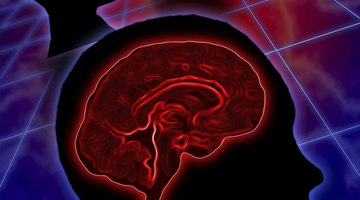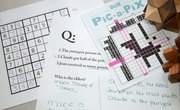Critical thinking can perhaps best be defined as active thinking. The process involves asking good questions about what the thinker is hearing, seeing or reading. The Nashville State Community College Critical Thinking Initiative identified a number of traits possessed by the critical thinker. A critical thinker thinks and considers carefully, recognizes and works with complexities, has intellectual curiosity, is truth-seeking, communicates clearly and logically, is fair-minded, possesses intellectual empathy and intellectual courage and the ability to reach reasonable conclusions. Critical thinking is important in everyday life for sorting out what is accurate, understanding and considering contexts and achieving objectivity.
Seven Traits of the Critical Thinking Process
Registered Nurse Jennifer Olin characterizes critical thinking as a process nurses must apply because nurses have always needed to be "organized, purposeful and disciplined" in their daily decision-making. Here are seven characteristics of critical thinking as a process, according to Olin: it is rational and employs reason, it is reflective, rooted in an attitude of inquiry, autonomous and independent, fair, associated with creativity and focused on sound decisions and reliable observations. Olin points out, for example, that nurses cannot jump to conclusions. They must weigh facts and evidence when deciding issues daily, such as, "Did this patient get all of his medications today?"
The Elements of Critical Thinking
Critical thinking scholars Linda Elder and Richard Paul discuss eight specific elements or structures of thought which can act as the tools we need to take apart and analyze our own thinking. They are: purposes, questions, points of view, information, inferences, concepts, implications and assumptions. According to these experts, the effective critical thinker will ask himself very pertinent questions on a routine basis. These include, for example: what exact question am I trying to answer? What information am I using, and how am I interpreting it? What is my point of view? What conclusions am I reaching? What am I taking for granted or assuming?
Valuable Intellectual Traits
Elder and Paul point out that effective critical thinkers bring a number of specific traits to what they are reading, viewing or discussing. The first is intellectual humility, meaning the thinker is conscious of the limits of his or her own knowledge and experience. Intellectual courage refers to the understanding that often ideas that aren't popular or trendy can be correct or valuable. Faith in reason is having confidence that all humans are capable of cultivating a rational approach. Fairmindedness is about treating all viewpoints with respect, without reference to the thinker's own feelings. Intellectual perseverance involves willingness to tolerate confusion and unanswered questions.
Applying Critical Thinking Practically
Changing thinking habits is what Elder and Paul term "a long-range project, happening over years, not weeks or months." The first strategy they advise for achieving more effective thinking habits is to manage time in order to minimize wasted time, such as time spent clicking through television channels. Elder and Paul also suggest trying to analyze the logic of a specific problem, perhaps while driving to work. The next step is to determine what information is needed and how to gather it. Other suggestions include choosing one specific intellectual trait to work on at a time and keeping an intellectual journal.
Related Articles
References
Writer Bio
Susie Zappia teaches humanities and research and writing courses online for several colleges. Her research interests include counterculture literature of the 1960 and instructional design for online courses and she enjoys writing about literature, art and instructional design. She holds a Master of Arts in humanities from California State University, Dominguez Hills and a Master of Science in instructional design from Capella University.











